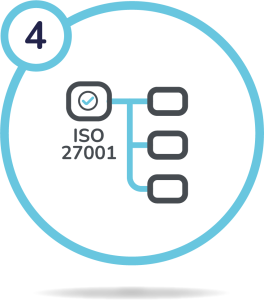Home | News & Insights |
A 6-Step Plan for Successful Digital Transformation
Thomas Taylor
Managing Director
PUBLISHED
24th April, 2023
Earlier this year, Tom Taylor, Founder and Managing Director of E-Sign discussed in an interview with Fotis Georgiadis about how companies can take their business to the next level with Digital Transformation. Tom explained the importance of digital transformation and how E-Sign work with companies across various industries to help them grow with the implementation of digital document management and eSignatures.
According to Accenture, digital transformation is the process by which companies embed technologies across their businesses to drive fundamental change. The benefits? Increased efficiency, greater business agility and ultimately the unlocking of new value for employees, customers and shareholders. However, many companies find it challenging to execute a digital transformation project successfully. Incomplete planning, a lack of resources, and inadequate expertise are among the common reasons for failure.
To address these challenges, we follow a consistent, six-point framework for all of our digital transformation projects:
1. Plan the Organisational Goals:
The first step in a digital transformation project is to identify the company’s strategic goals and the expected business impact.

2. Plan the Execution and Goals:
In this step, we ensure that all stakeholders are identified and are on board with the project’s overall goals.

3. Customer Insights:
In any digital transformation project, the customer should be a key consideration.

4. Technology Alignment:
This step involves assessing the technologies currently in use, determining which ones will enhance them, and identifying any additional technologies that will render them redundant.

5. Metrics and KPIs:
As listed in the business value map and organisational goals, the metrics should be agreed upon, and milestones/deliverables monitored.

6. Supervision and Management:
Finally, digital transformation specialists should drive the project with key stakeholders identified and monitor change management processes, liaising with senior managers and communicating issues, as well as successful completion of each key milestone.

In conclusion, digital transformation projects are complex and require a robust and consistent framework to ensure success. By following our six-point framework, companies can achieve their digital transformation goals and unlock their full potential.
 Facebook
Facebook
 X (Twitter)
X (Twitter)
 LinkedIn
LinkedIn











